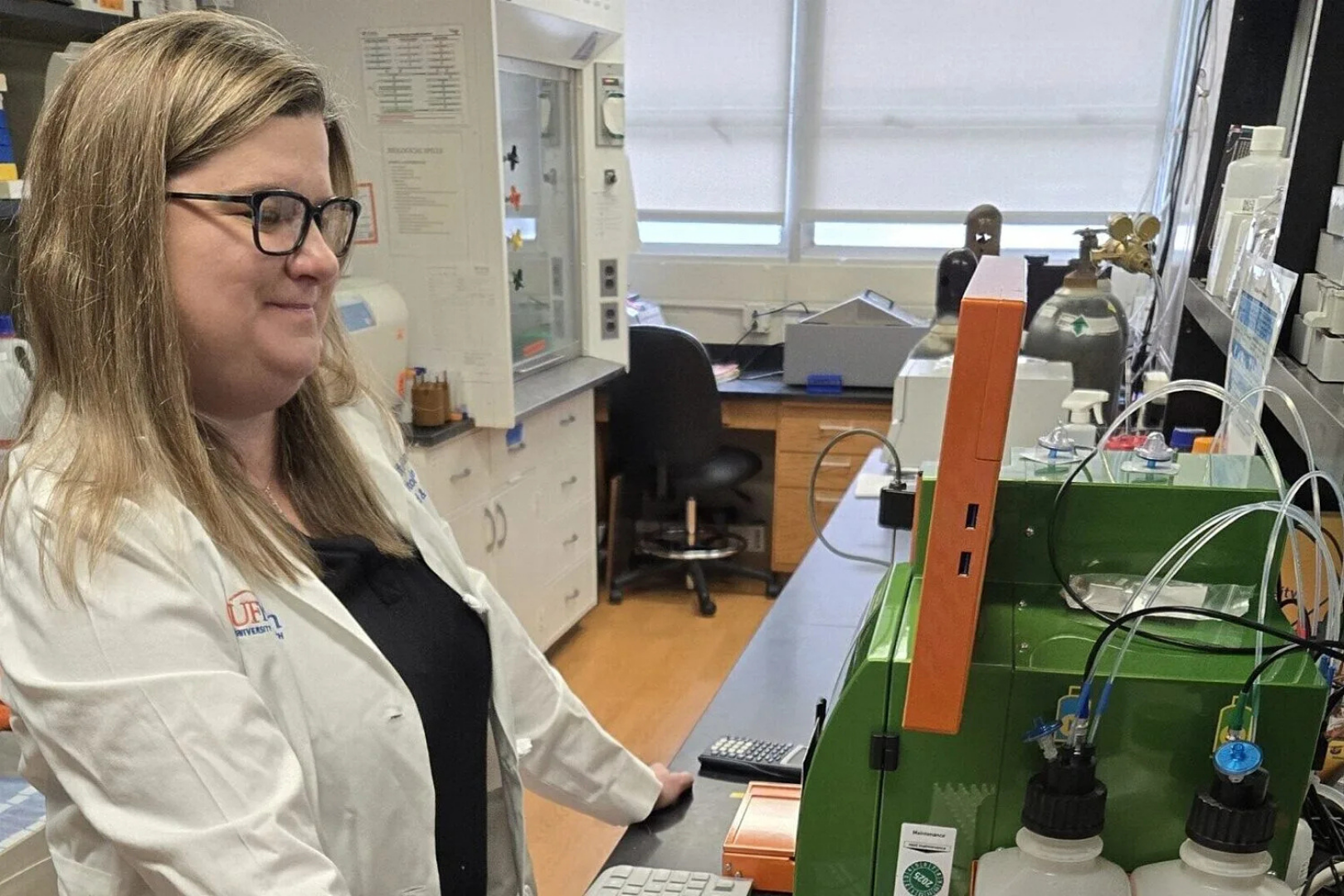The Florida Chemical Senses Institute is proud to recognize a significant achievement by FCSI member Dr. Jennifer Mulligan, who has received her first R01 award from the National Institute on Deafness and Other Communication Disorders (NIDCD). The grant will fund her research into how inflammation contributes to smell loss and support the development of a potential new treatment: a vitamin D nasal spray.
“I’m actually an immunologist by training,” Mulligan said. “Listening through the years to our patients and to my clinicians, there became this frustration that there was really no one studying how inflammation was affecting olfaction.” Receiving the R01 was a validating moment for her and her team. “It was really great to be rewarded that we were on the right track.”
The new treatment strategy arose after a failed attempt at oral vitamin D supplementation for patients with chronic sinus inflammation. “In that trial, we actually did not make any of the 28 patients better. It pretty epically failed,” she admitted. But that failure revealed something critical: inflammation was suppressing the enzyme that activates vitamin D in tissue. “No matter how much vitamin D we gave orally, it was never going to make the active metabolite in the tissue.” This discovery prompted the team to pivot to a more targeted approach using a nasal spray.
Vitamin D, known for its role in immune regulation, is an ideal candidate for local delivery. In animal models, Mulligan’s team observed immune cell elevations similar to those seen in human sinusitis. “In these mice [with vitamin D deficiency], they had elevation of what we have called granulocytes… They’re supposed to kill pathogens, but there’s no pathogen there.” These patterns mimic the profiles of patients with chronic inflammation. “Some patients are eosinophilic, some are neutrophilic, some are mixed. So current treatments only work for those with eosinophilic disease.”
That’s where the nasal spray shows promise. “Our treatment is unique in that it would hit a wide variety of types of inflammatory smell loss,” Mulligan says, “because we can deliver it at the site of inflammation, and we don’t need to affect the immune system systemically.”
Mulligan emphasized the importance of her research team’s diverse expertise in moving the project forward. “Hands down, what makes our application so unique is our team of investigators,” she said. “It’s the combination of both, you know, the bench to bedside and back again, that really makes the application unique.”
Enrollment for the study’s first phase will begin shortly. “Patients that have chronic sinusitis will be eligible to enroll, whether they have smell loss or not. We’re going to be collecting swabs of the olfactory cleft, nasal mucus, and testing everybody’s sense of smell.” With help from data scientists, the team will use machine learning to correlate immune markers with sensory performance.
Clinical trials for the spray are expected within five to seven years. “We’re going to use UF Drug Modeling Core to help us extrapolate mouse to human dosing… then begin pursuing IND [Investigational New Drug] status.”
As co-director of the UF Health Smell Disorders Clinic, Mulligan hopes this research will lay the groundwork for future solutions and inspire a new generation of researchers. “There is a huge unmet need for people that have expertise in both olfaction and in immunology. Hopefully, our work will kind of be an inspiration to future students.”
She’s already heard from patients who say that just knowing someone is working on this problem gives them hope. “Even if we can’t cure their particular type of smell loss… It’s just been a comfort for them knowing that their disease is being recognized.”
For Mulligan, the motivation is simple: “We hear the patients, and we are here trying to make you better.”
Read More: https://ufhealth.org/news/2025/uf-health-researcher-finds-potential-treatment-for-lost-sense-of-smell

